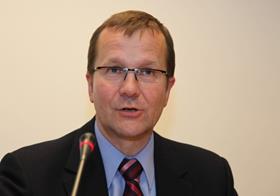
Copa-Cogeca has welcomed the action taken by European Agriculture Commissioner Dacian Ciolos to introduce measures supporting EU perishable fruit and vegetables, in response to the Russian ban on agricultural products.
“We have been calling for this to avoid prices in the sector from collapsing altogether,” Copa-Cogeca secretary general Pekka Pesonen said.
'Prices for these perishable products have been hit hard by the crisis, falling by up to 90 per cent in some cases,' he continued. 'Prices for other products targeted by the ban are also coming under intense pressure. 'We therefore welcome the swift action from the European Commission today, after the initiative was discussed by Member States last Thursday in the Management Committee'.
The products covered by the measures announced this week include tomatoes, carrots, white cabbage, peppers, cauliflowers, cucumbers, and gherkins, mushrooms, apples, pear, red fruits, table grapes and kiwifruit. The markets for these products are in full season, with no storage option for most of them and no immediate alternative market available.
Measures have also been taken by the Commission for peaches and nectarines.
The exceptional measures, whicha pply from 18 August owards, will include market withdrawals, especially for the free distribution of the products to for example charities, compensation for non-harvesting and green harvesting.
The aid will cover all producers whether they are organised in producers organisations or not, meaning that any volumes
withdrawn from today onwards (or subject to green harvesting or the other measures) will already be covered by these additional measures, subject to controls, and they will apply until the end of November with a budget of €125 million.
Other measures to help support farmers and agri-cooperatives will be discussed in a weekly meeting with Member State experts and experts from the European Parliament in Brussels on Friday.
Copa-Cogeca is calling for implementation of extraordinary market measures such as withdrawing products from the market and sending them to for example charities, accelerating the date of payment for direct payments, speeding up promotion campaigns to stimulate new demand and accelerating some free trade agreements with non-EU countries to open their markets.
The Russian ban will hit the farming sector hard well beyond one year, the organisation predicted, with Copa-Cogeca already calculating the extent of the damage.
“Estimates show costs to be much bigger than the €400m foreseen in the CAP crisis fund,' Pesonen stressed. 'This situation is not our fault yet it is our sector that is being hit the most.
'The support must consequently not be financed out of the CAP budget only but also from other funds. In view of the size of this crisis, monitoring the profit margins in the food chain will also be of huge importance to reduce speculation. The Commission must also ensure measures are coordinated between member states and ensure that extra national funds are released to deal with the crisis'.



